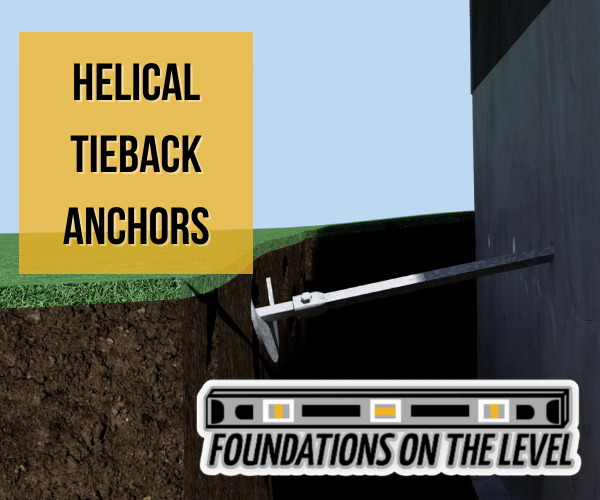Why It Is Crucial To Maintain Your Retaining Walls
Retaining walls, well, most retaining walls anyway, have a specific structural purpose. They hold back the earth behind them.
When a retaining wall fails, it can lead to a host of problems that can damage your property. That is why watching them for signs of damage is so important.
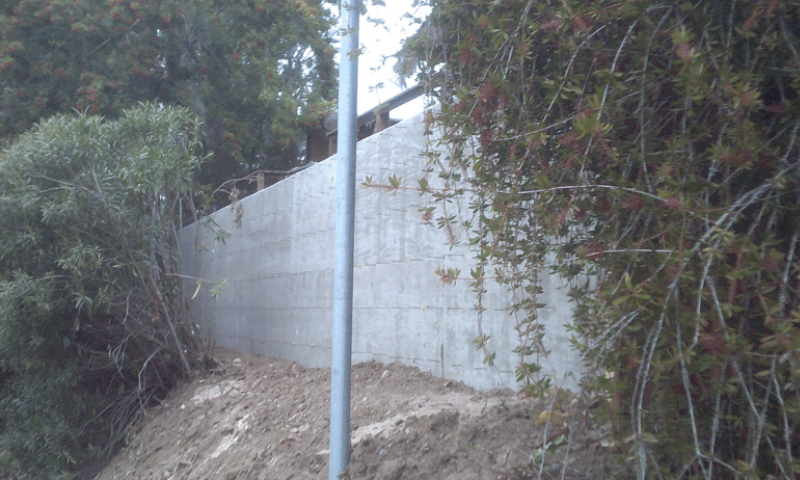
Why Retaining Walls are Used
Retaining walls are used throughout the country. They are most common, however, in hilly areas where land is at a premium, such as our base in Southern California.
There are a number of common uses of retaining walls:
1. Prevent Soil Erosion and Soil Displacement
Retaining walls stabilize soil on sloped terrain. They prevent it from washing away during heavy rains or shifting during earthquakes.
2. Create Usable Space
Sloped or uneven land isn’t practical for some uses. Retaining walls can be used to turn those slopes into flat, usable areas for gardens, patios, driveways, or buildings.
3. Support Slopes
Retaining walls can provide structural support to prevent soil from sliding, especially on steep slopes or hillsides.
4. Aesthetic Landscaping
Retaining walls can enhance the visual appeal of a property by creating terraces and serving as decorative elements.
5. Improve Accessibility
Retaining walls can create level walkways or paths on slopes, making areas more accessible.
Consequences of Retaining Wall Failure
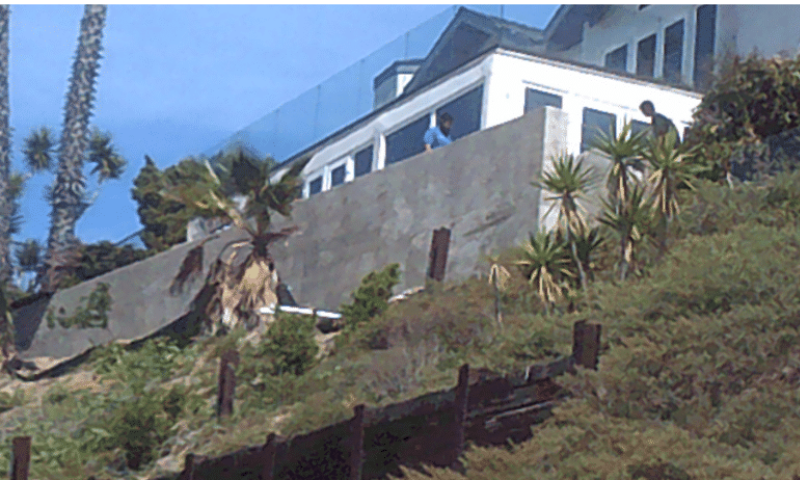
The severity of the potential consequences of retaining wall failure are tied directly to the wall’s purpose. The 8-foot wall helping stabilize a hillside on your property is going to cause much more severe damage if it fails than the three-brick-tall retaining wall in your yard that is mostly decorative.
Some of the ways in which retaining wall failure can affect your property include:
Erosion
If a retaining wall fails, the cause is likely, at least in part, the soil behind it exerting pressure against it. What do you think the chances of that soil staying in place once the retaining wall is gone are?
Depending upon which side of the retaining wall your property is on, this could have different consequences. If the wall was providing a level surface for your patio or driveway in an area that would otherwise be sloping downward, erosion in the soil beneath the concrete slab could destabilize it, causing portions to sink and crack.
If the retaining wall is upslope from your property, the erosion could send the ground into your yard, at minimum causing a mess and worst-case damaging your home or other buildings on the property.
Damage to Nearby Structures
As noted above, shifting of earth previously held back by a retaining wall can cause damage to nearby structures in two ways. First, the soil could slide into them. Second, it could destabilize the ground that they sit on, causing them to sink unevenly.
In either case, the damage can be significant and can increase the next point.
Financial Costs
Repairing or rebuilding a failed retaining wall can be expensive, especially if additional damage occurs to your property or landscaping. Legal liabilities may arise if the failure impacts neighboring properties or public infrastructure.
Signs That Your Retaining Wall Might Fail
- 1. Wall Has Begun Leaning or Tilting
- 2. Cracks in Wall
- 3. Bulging or Bowing in the Retaining wall
- 4. Drainage Not Working
- 5. Erosion at the Top of the Wall or Beneath Its Base
- 6. Movement of Wall Sections or Capstones
Read more about these issues in our article on Signs of Retaining Wall Failure.
Do You Need Retaining Wall Repairs in San Diego or Orange County? Contact Us Today
At Foundations on the Level, we are experienced at stabilizing retaining walls that are in danger of failing. If appropriate, we can install helical tiebacks, which anchor the wall into the soil behind it, counteracting the forces pressing out against the wall. If you want to learn more, contact us today.
Service Area
At Foundations on the Level we are proud to provide foundation repair and more services to San Diego and Orange counties in California. This includes the following cities and more:
San Diego County: Bonita, Carlsbad, Chula Vista, El Cajon, Encinitas, Escondido, Fallbrook, Lakeside, Lemon Grove, Oceanside, Rancho Santa Fe, San Diego, Santee, San Marcos, Spring Valley, Vista
Orange County: Aliso Viejo, Anaheim, Arcadia, Costa Mesa, Dana Point, Garden Grove, Huntington Beach, Irvine, Laguna Beach, Laguna Niguel, Mission Viejo, Newport Beach, Orange, San Clemente, San Juan Capistrano, Santa Ana, Tustin, Yucaipa
Similar Blog
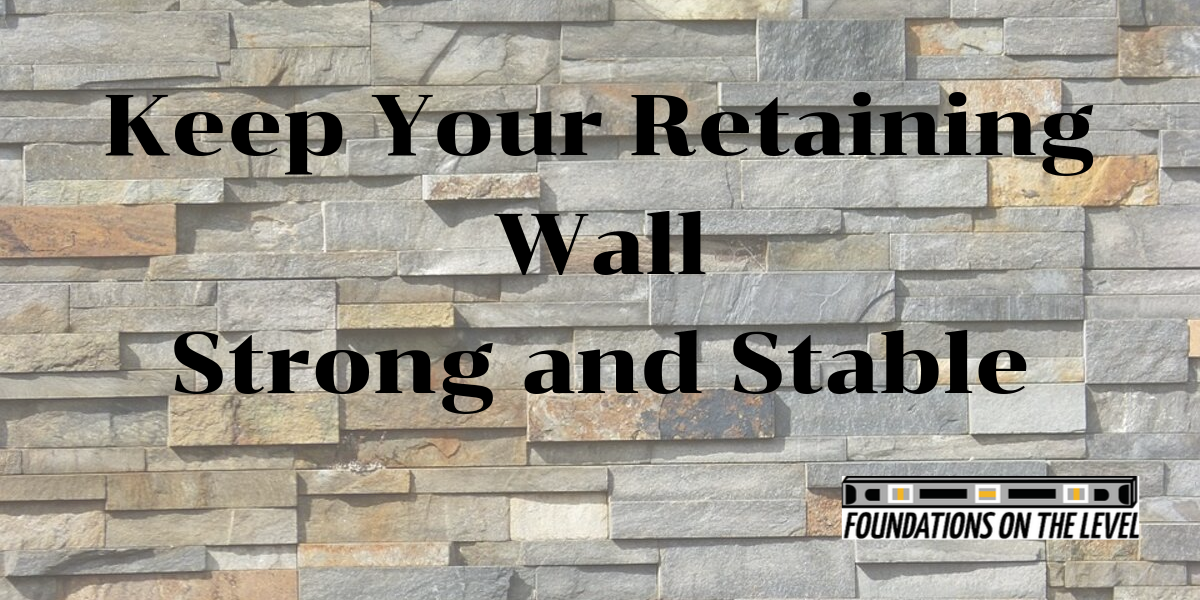
Your Guide to Retaining Wall Repair
August 8, 2025
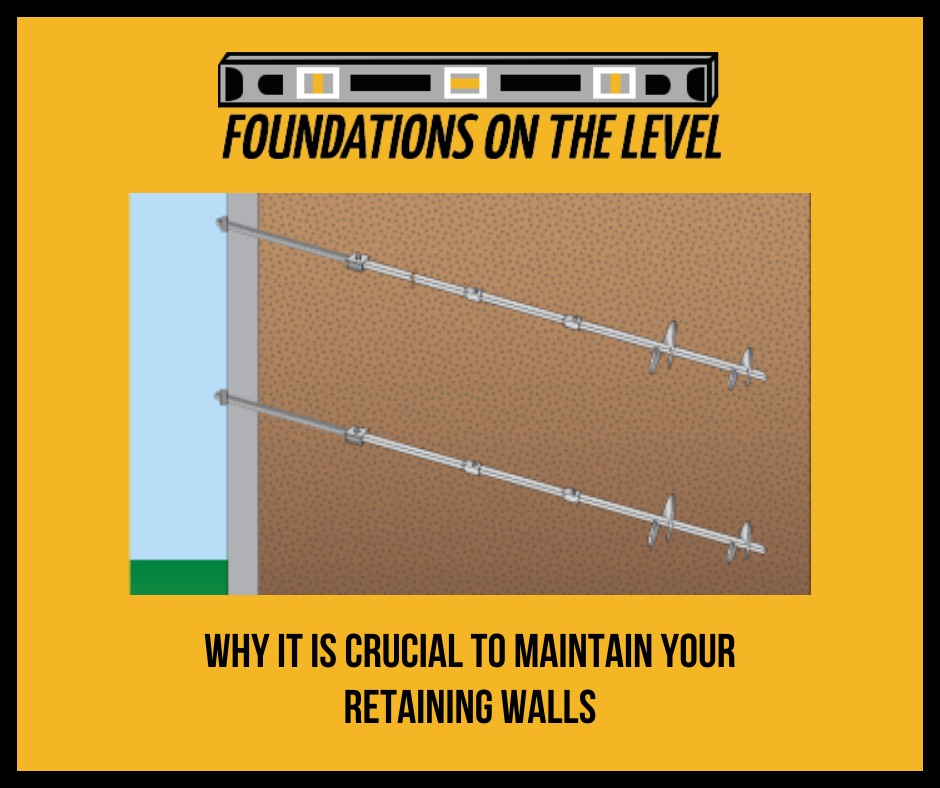
Why It Is Crucial To Maintain Your Retaining Walls
December 10, 2024

Maintaining Your Retaining Wall
April 20, 2020
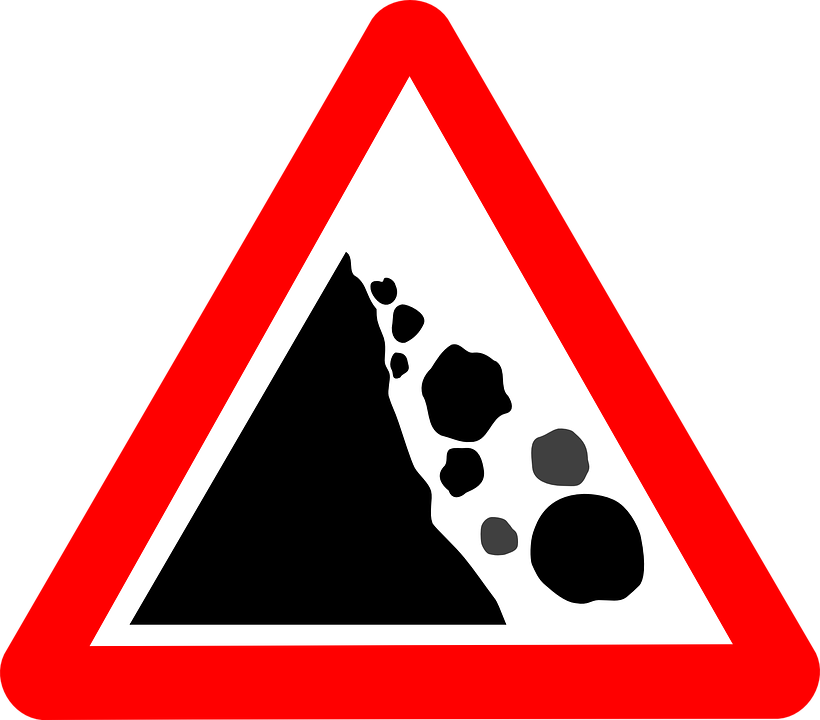
Landslides and Foundation Problems
March 20, 2019
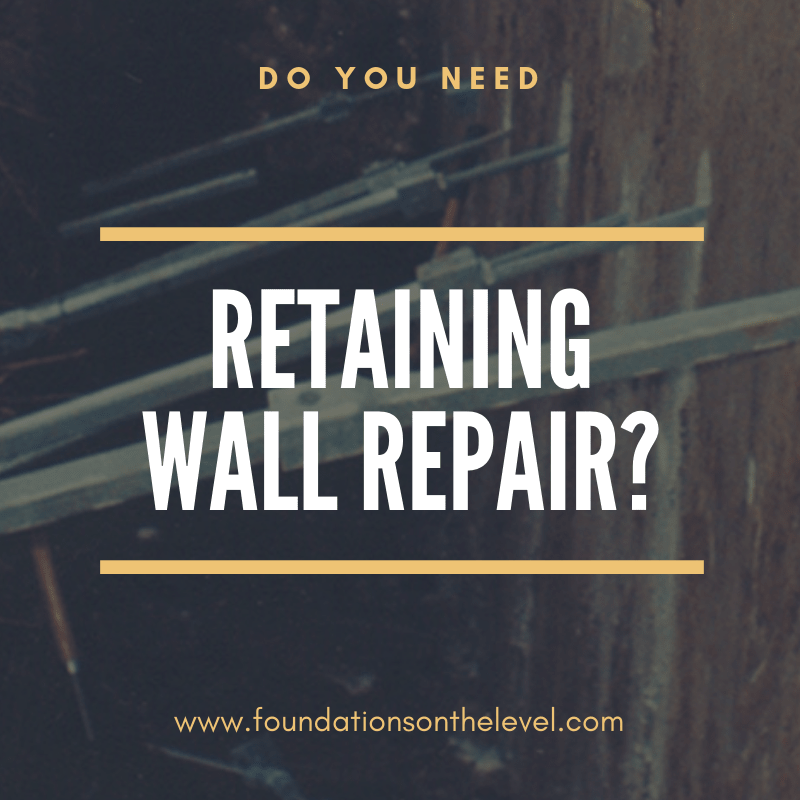
Signs of Retaining Wall Failure
September 27, 2018
